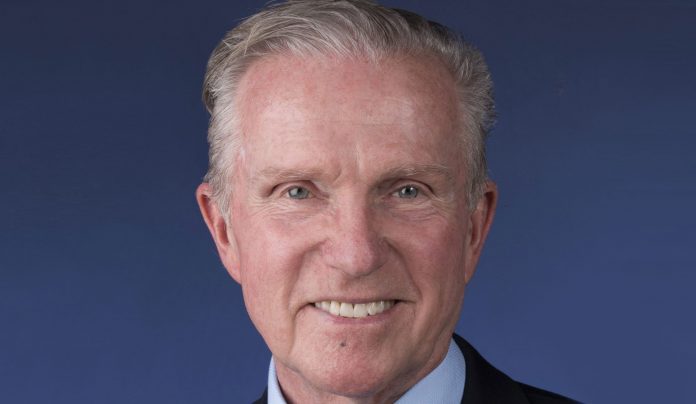In my last blog piece, “A Tip of the Hat to Medical School Applicants: Chipping Away at Stigma,” I wrote about—and cheered—medical school applicants disclosing mental illness challenges in their personal statements. I view this as a long overdue sea change. It is promoting more honesty in the entire process and shifting the culture of medicine from choking duplicity to healthy transparency. What I didn’t realize is how complicit many of us have been in this charade, which so deeply affects the doctors of tomorrow.
Dr. Michelle Silver’s evocative recent article “The Good Fit—Why Medical Applicants’ Personal Statements Are Anything but Personal” explains this with truth-telling and insight.1 Wrestling with crafting and making her personal statement “personal,” she decided to include some medical history. “The years I had spent coming to understand and recovering from my eating disorder had empowered me to apply those skills to my future patients . . . What better vehicle for expressing this truth than my personal statement for medical school admission?” But this revelation was short-lived and dashed by an email from a physician she had shadowed, which read “While someone who knows you well can appreciate your openness . . . I don’t think it is a good idea to share this with an admissions committee. They won’t think you’re fit to enter into the medical field.”
She sent the essay to others and got the same reaction. She writes “I felt defeated.” And she continues “I took the feedback as any good pre-med would and produced a watered-down essay I knew the committee would enjoy. It worked, and I was accepted to multiple schools.”
Dr. Silver offers a similar encounter a few years later when preparing her application for residency. She decided to write about the first critically ill patient she had cared for as a medical student, in particular “the disconnect between the logistic task at hand and my visceral discomfort as I watched his family come to terms with his imminent death.” When her mentor reviewed the draft, she writes: “He explained that by describing an experience in which I had cried during routine medical practice, I was setting myself up to look unfit for the role—that I appeared ‘too emotional’ to handle the day-to-day work of a resident, and though he knew I was an excellent candidate, he wanted to ensure that I ‘presented myself the right way.’ ” She “took the feedback as any good medical student would” and changed her essay. She matched at her first choice of residency programs.
With the hard-earned wisdom that accrues from being ill and receiving help, Dr. Silver writes with eloquence about the dangers of filtering one’s life to fit in, to be accepted. “I believe making the psychological trade-off inherent in censoring our stories not only is detrimental to our well-being, but also fuels the ongoing burnout epidemic in medicine.”
Sadly, I have heard this narrative over and over, spanning decades of treating physicians, the pressure to remain silent and stew in the shame of an unspoken psychiatric illness. It leads to hesitancy in seeking help. Symptoms worsen. It is corrosive and wrong. It has to stop.
Dr. Silver longs for openness in medical education. “In such a culture, our personal statements might in fact become personal—and could collectively, become a celebration of diverse lived experiences, an opportunity for a more comprehensive appreciation of each person who aspires to become an empathetic and effective physician.”
Dr. Silver’s message is a call to arms. I recommend it as essential reading. She is not alone in speaking out about what’s wrong with our medical training culture. Have a look at a new book, written by a junior colleague of mine in Australia, Dr. Yumiko Kadota.2 Subject to bullying, racism, sexism and more, she walked away. Reflecting one of the labels attributed to her by supervisors, the book is called Emotional Female.
References
- Silver MH. The Good Fit—Why Medical Applicants’ Personal Statements Are Anything but Personal. The New England Journal of Medicine. 384;12:1086-1087.
- Kadota Y. Emotional Female. Penguin E-Books; 2021.
Dr. Myers is Professor of Clinical Psychiatry and recent past Vice-Chair of Education and Director of Training in the Department of Psychiatry & Behavioral Sciences at SUNY-Downstate Health Sciences University in Brooklyn, New York. He is the author of 9 books, the most recent of which are “Becoming a Doctors’ Doctor: A Memoir”, “Why Physicians Die by Suicide: Lessons Learned from Their Families and Others Who Cared” and “The Physician as Patient: A Clinical Handbook for Mental Health Professionals” (with Glen Gabbard, MD). He is a specialist in physician health and has written extensively on that subject. Currently, Dr. Myers serves on the Advisory Board to the Committee for Physician Health of the Medical Society of the State of New York. He is a recent past president (and emeritus board member) of the New York City Chapter of the American Foundation for Suicide Prevention.
The views expressed on this blog are solely those of the blog post author and do not necessarily reflect the views of the Psychiatry & Behavioral Health Learning Network or other Network authors. Blog entries are not medical advice.
This blog was first published on 15 April 2021 on Psych Congress










It is very sad to read of the reactions from senior medical practitioners to have to advise students and would-be students not to be honest with medical and psychological issues they have had in the past. A physician who has dealt with these issues personally would be incredibly more understanding than those who have not had the experience. We need more honesty in applications, and that honesty must be honored favorably, not held against an applicant.
Thank you. I am hoping that stories like this will change hearts and minds.